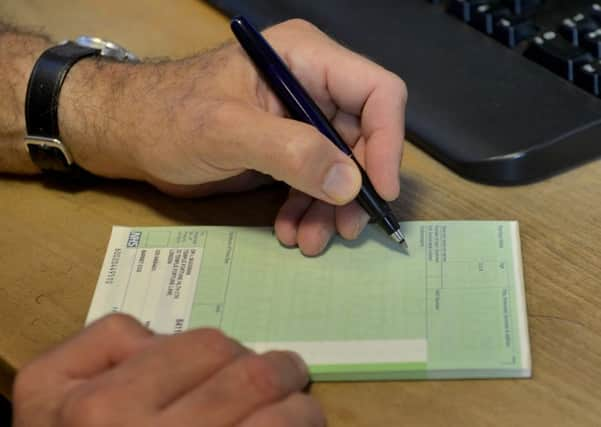Coeliacs told to '˜eat potatoes instead of pizza' as gluten-free prescriptions are axed


The clinical commissioning group (CCG) said most of those responding to a public consultation were coeliac patients or their carers concerned about being able to afford the prices charged in supermarkets.
But documents revealed: “The committee felt that, although gluten-free foods may be higher in price than non-gluten-free foods, they are still affordable and there is an option to buy naturally-occurring gluten-free foods such as potatoes and rice; which may be better than bread and pizza bases that arguably do not advocate adherence to healthy balanced diets.”
Advertisement
Hide AdAdvertisement
Hide AdAlmost 60 per cent of 241 responses received by the CCG ‘strongly disagreed’ with scrapping the prescriptions, a cash-saving move.
Four in 10 said funding gluten-free products is just as important as funding medicine on the NHS, and most agreed people will become more ill if they are no longer able to get their food on prescription.
“Historically, availability of gluten-free foods in supermarkets was poor, therefore obtaining these products from community pharmacies via prescriptions improved access to them,” papers read.
“However, with the increased awareness of coeliac disease and gluten sensitivity as well as a general trend towards eating less gluten, gluten-free foods are now much easier and accessible to buy.
Advertisement
Hide AdAdvertisement
Hide Ad“A wide and expanding range is now available from supermarkets and online. It is acknowledged that in some supermarkets their gluten-free range can be more expensive. Nonetheless, the price paid by the NHS on prescription is much higher and in cases it may be twice as expensive.”
The CCG spends around £85,000 funding certain gluten-free foods such as bread, flour, cereals, oats, and pasta, and writes around 200 prescriptions a month.
Health bosses admit people could get sicker if they start to eat gluten as a result of this move, but clinical chief officer Dr Tony Naughton said: “While we understand this will be an adjustment for those patients who receive gluten-free foods on prescription, shop-bought items are still affordable and there is also of course the option to buy naturally gluten-free products.”
People with coeliac disease, when the small intestine is hypersensitive to gluten, can find it difficult to digest food and suffer from painful stomach and bowel conditions if they eat the ingredient, which is a mixture of proteins found in wheat and grains, including barley and rye. It is an autoimmune disease and not a food allergy as sometimes believed.
Advertisement
Hide AdAdvertisement
Hide AdObvious sources of gluten include flours and flour-based foods like bread, pasta, cereal, cakes, and biscuits. However, it is also found in fish fingers, sausages, gravies, stocks, and soy sauce.
The NHS does not keep a register of people with the disease, although one in 100 people have it, charity Coeliac UK said. Of those, just 24 per cent have been diagnosed.
Sarah Sleet, chief executive at Coeliac UK, the national charity for people withy coeliac disease, said: “For someone medically diagnosed with coeliac disease there is no choice but to stick to a gluten-free diet, day-in day-out for life and so access to gluten-free staples is critical, and not as easy as you might think.”
The charity said gluten-free bread is, per gram, £6 more expensive than normal bread, and said complications from not maintaining gluten-free diets include osteoporosis, infertility and, in some instances, bowel cancer.
Advertisement
Hide AdAdvertisement
Hide Ad“Any reduction in the gluten-free prescription services for people with coeliac disease is being based on budgets rather than patient need or clinical evidence,” Ms Sleet added.
“The provision of gluten-free staple food on prescription is a vital element of the support offered to all patients by the NHS and it is essential to prevent long term damage to health.
“Simple switching to alternative carbs such as rice and potatoes risks malnutrition with bread alone providing between 10 and 20 per cent of our most important nutrients such as protein, calcium and iron, but potatoes and rice only providing a fraction of this.”
Blackpool CCG also announced it would ban gluten-free prescriptions last year, in a bid to save money, and also faced criticism.